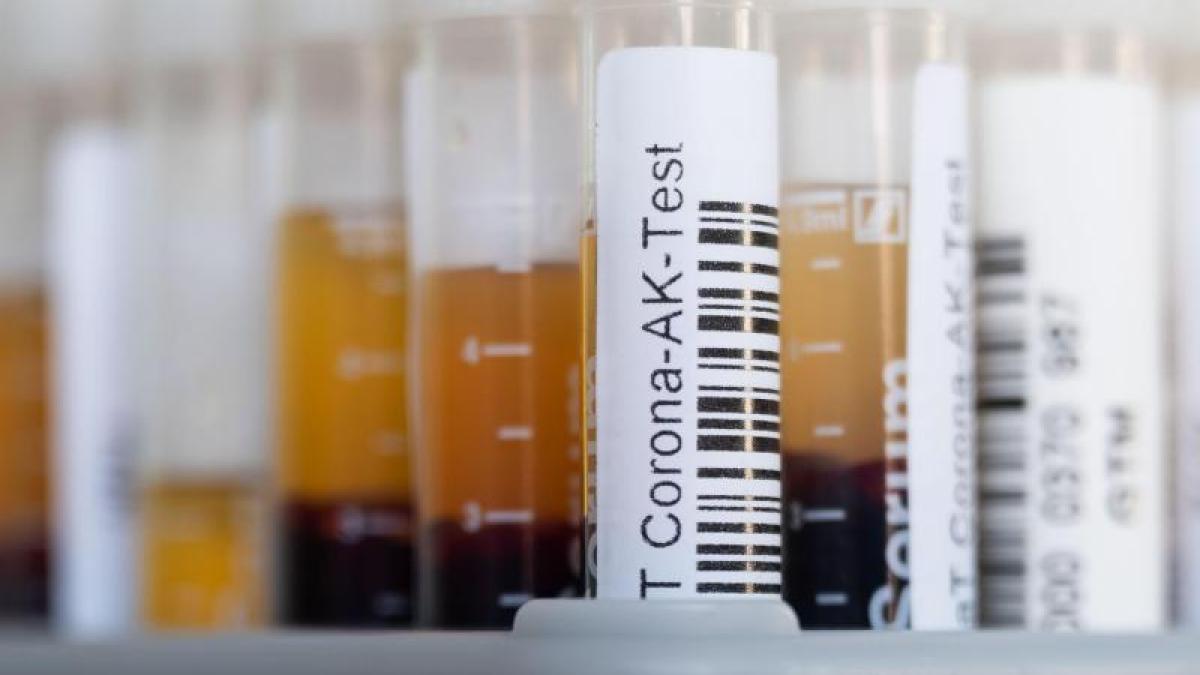Am I still adequately protected against Corona? Here you will find the most important answers on the subject of antibody tests – including the costs and procedure.
New variants and sub-variants of the corona virus are spreading all the time. This raises the question of whether a fourth or fifth vaccination with the Omikron vaccine makes sense and how good your own immune protection is – and with it the thought of an antibody test. But what significance does such a test have and how does it work? The most important questions and answers.
How long does the immune protection last after a vaccination or infection?
The more time elapses after a corona vaccination or infection, the weaker the immune protection becomes. The Standing Committee on Vaccination (Stiko) therefore recommends a booster vaccination about six months after the last vaccination or infection. Many think of an antibody test first. After all, there would be no need for a vaccination if the vaccination protection were still sufficient.
Procedure: How does an antibody test work?
There are two ways to detect antibodies in the blood. The procedures have improved significantly compared to the beginning of the pandemic. At first it was not possible to say whether the antibodies present in the blood were really effective against the Coronavirus are. Today it is possible to define the surface structures of the coronavirus (spike protein) and thus whether the antibodies really contribute to immunity.
” data-consent-eu=”false” data-consent-only-for-pur=”true” class=”cxenseignore p-video p-ratio_16-9″>
We need your consent to display the Glomex video
With your consent, external content can be displayed here that supplements the editorial text. By activating the content via “Accept and display”, glomex GmbH can store or retrieve information on your device and collect and process your personal data, even in countries outside the EU with a lower level of data protection, to which you expressly consent. The consent applies to your current visit to the site, but you can withdraw it again during this time using the slider. Data protection
Video: dpa
1. Simple test
Simple antibody tests determine: Are antibodies there or not? The tests therefore do not provide any information about the origin, quantity or quality of the antibodies. So you only find out if you have had an infection before or if there are antibodies left over from the last vaccination. And even that is not so certain, because studies have shown that in 50 percent of people, the antibodies formed by an infection are no longer detectable after less than three months.
2. Surrogate- Neutralization test
Also read about this
The so-called surrogate neutralization tests are more precise. The main purpose of this is to test the function of the antibodies, i.e.: Do they really still protect? For this purpose, the blood is associated with the corona virus and the reaction is observed. If the test is positive, this means that effective antibodies are actually still present. But the result is more of an indication and by no means a reliable statement. Because how the body reacts to an infection, how the disease progresses, is very individual and only depends to a certain extent on the immunization or the amount of antibodies. Because the so-called T-cells are mainly responsible for the defense. And they can hardly be measured at the moment.
Because the effort is high and the statement is rather vague, the surrogate neutralization tests have so far not been used for the general public.
3. antibody testing for home
There are also home tests that work in a similar way to an insulin measurement: You take some blood from your fingertip and dribble it onto a test cassette. However, these tests are very uncertain.
Where can you do an antibody test?
It’s best to see a doctor, because he can classify the result professionally. However, there are also certified laboratories that carry out antibody tests.
How much does an antibody test cost?
Health insurance only covers antibody tests that are medically necessary. This does not include the vaccination decision. A simple antibody test costs about 20 euros. Neutralization tests are more expensive and cost between 50 and 60 euros.
Can an antibody test provide more certainty?
Depends on what you want to know. If you are unsure whether you have ever been infected, you can find out this way. But of course that only works for unvaccinated people, because vaccinated people have antibodies that the test would respond to. If the test is negative, it does not mean that you have never been infected. Because the antibodies disappear over time.
And before the booster? Should I do an antibody test before vaccination?
It is a misconception that a high antibody level means a good basic immunization and therefore no (booster) vaccination is necessary. Therefore, antibody tests are not a good basis for the vaccination decision. According to the RKI, there is no known minimum number of antibodies required for immunization: “The value that means continued vaccination protection and thus makes a third vaccination dose unnecessary is not known.” In addition, there are not “too many” antibodies, i.e. a booster cannot cause any damage in the body in this regard.
For whom do antibody tests make sense?
That doesn’t mean that the tests are completely useless, for example, for people who can’t be vaccinated or who don’t respond well to vaccines, such as organ transplant recipients, the immunocompromised, or cancer patients. With them, an antibody can be used to see whether the vaccination was successful and the body is immunized or whether another vaccination is necessary.
In other words: Antibody tests should not be used to carry out or reject a vaccination, but to check the success of the vaccination. However, experts advise against it for normal people. The results are too unreliable for that.
